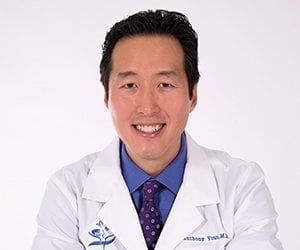As with any high stakes exam, it’s not surprising that there are a number of rumors circulating around the MCAT exam. So we are busting three of the top myths about the MCAT scores and score scale.
Myth #1: The MCAT exam is graded on a curve.
There is no curve associated with the MCAT exam. Instead, the MCAT exam is scaled and equated so that scores have the same meaning, no matter when you test. What does that mean, you ask? There are many different test forms that are produced for a testing year, any of which you could see on your exam day. The forms of the exam are designed to measure the same basic concepts and skills, but each form contains different sets of questions. While care is taken to make sure that each form is about equivalent in difficulty, one form may be slightly more or less difficult than another. We adjust for these differences in the difficulty of test questions when we convert the number of questions you answer correctly to the MCAT score scale. This ensures that scores have the same meaning across test administrations and testing years.
medical student
The Most Important Lessons I Learned While Applying to Medical School
Applying to medical school is a humbling experience, even if you have a successful application cycle. No matter how great your pre-medical advisor is or how many articles you have read about the process, you are still bound to have a few missteps that will leave you doubting yourself as a potential MD or DO candidate. It has been nearly a year since I submitted my primary AMCAS application, and as I reflect on the application cycle, several moments stand out to me as essential lessons to learn before you begin your own application process:
Three Things to Consider if You Want to Quit Medicine
It was during my third-year pediatrics rotation that the doubts started creeping in. I really … Read more
Q&A with Physician-Author Dr. Anthony Youn
Dr. Anthony Youn is a board certified plastic surgeon, author, and television personality. He graduated from Michigan State University College of Human Medicine, completed his general surgery and plastic surgery residencies at Grand Rapids, and finished up with an aesthetic plastic surgery fellowship in Los Angeles. He now works at his private practice, Youn Plastic Surgery, PLLC, in Troy, Michigan.
Diversity in Med School: What Minority Applicants Need to Know
While getting accepted into medical school is more difficult than ever in America, there are … Read more
Five Mistakes to Avoid in Medical School Interviews
We all know medical school interviews are important. But did you know, according to a survey of medical school admissions committees conducted by the American Association of Medical Colleges (AAMC), interviews are the most important factor used to decide which applicants gain acceptance (Dunleavy DM, et al. Medical School Admissions: More than Grades and Test Scores. AIB. 11 (6), 2011)? The most important factor! Fortunately, interview techniques can be learned and, when practiced, improved. This article addresses the five biggest mistakes I have seen pre-meds make regarding interviews during my over 10+ years as a Harvard pre-med tutor and admissions consultant.
Chronicles of a Med Student: And That’s a Wrap!
Whew! It’s been a long year and I am itching for a much-needed, well-deserved break. Thankfully, summer is here to save me. I can’t wait to talk about my summer plans and all the ways to spend the summer between first and second year (also sadly known as your last summer ever). I think it will be beneficial to recap what I’ve discovered this past year!
Should Medical Students be Sued for Malpractice?
An Ongoing Dialogue Between Medicine and Law It is no wonder why medical schools across … Read more
How Should I Transition From a Gap Year to Medical School?
With one or more years between undergraduate study and a medical school education becoming more common, many medical students must now figure out how to transition from their gap years back into the classroom. Some students worry that they will have forgotten how to study effectively, while others worry about transitioning from the relatively stress-free environment of a gap year to the rigor of medical school. If you are a newly-minted medical student trying to prepare for your first year of medical school after some time away from academic life, consider making your transition smoother with these tips:
Choosing a Residency That’s Right for You
If you are in medical school, you have been making choices for a long time now, from what to major in as an undergraduate to what volunteer work during your gap year will give you the best chances at getting a coveted med school slot. But now that you are in medical school, one of the most important decisions still lies ahead: what kind of residency should you choose? This is an incredibly important choice that will shape the rest of your career. A good decision now will make it more likely that you will be satisfied with your professional life down the road.
The choice can be a difficult one. What things should you consider before you decide? Read on to find out more about the steps you should take in order to match to a residency that will leave you both personally and professionally satisfied.
The Key for Student Doctors to be Debt Free
With loan debt for students in graduate health professions rising exponentially, the conversation around choosing the right student loan repayment option and/or opting for the public service loan forgiveness (PSLF) program is becoming much more popular. Instead of focusing on what repayment plan gives a graduate the lowest monthly payment or whether or not he/she should pursue loan forgiveness, why not focus on minimizing expenses and working hard to pay off the debt as fast as soon as possible? This will allow for moving on to other financial goals with more intensity and focus such as buying a home, saving for retirement, and giving to name a few…all without any student loan debt getting in the way.
Staying Healthy During Medical School
Medical students and health professional know the importance of teaching others to stay healthy, especially when it comes to the prevention of many chronic conditions like heart disease or obesity. But knowledge is not always enough and doesn’t always result in self-care. The long hours, massive amounts of studying and high levels of stress that are the norm for medical school can make it difficult to start or maintain the good habits that will keep you healthy during your med school years. However, there are important reasons for doing this–and many simple habits that can make it happen.
Marriage and Medical School: The Pros and Cons of Balancing Both
Updated January 9, 2022. The article was updated to correct formatting and minor grammatical errors. … Read more
How to use a Pea Plant to Increase your USMLE, COMLEX, and Shelf Exam Scores
Studying for the boards overwhelms most people. The sheer amount of information to know is … Read more
5 Study Tips for the USMLE Step 1
1. Set a goal
As the saying goes, “being begin with the end in mind.” Before you begin preparing for the USMLE Step 1, you should consider where you are with your knowledge base and your score, as well as what your goal target score is. To determine where you are starting from, you should take a practice test. Online prediction calculators use your scores on question banks and the USMLE practice test to estimate how you will do on the actual Step 1 exam.
When setting a goal, consider that 192 is currently the minimum passing score for USMLE Step 1, and 229 was the national average in 2014 (the most recent year for which data is available). However, depending on the specialty into which you desire to match, you may have to aim for a significantly higher score. If you’re not sure what specialty you want to pursue, you’ll want to score as high as possible, though you probably want to do that anyway. This is a table summarizing average USMLE Step 1 scores by specialty in the 2014 Match.
Exam preparation: More than just studying?
Do you know of a colleague who is extremely good at their job, yet cannot pass the professional exams required to ascend the career ladder? Or an exceptionally bright friend – who seems to fall apart during exam periods? Or do you yourself struggle when it comes to final assessments? I’m sure most of us are familiar with situations like this, as they are a very common occurrence. Failure to pass specialist exams in one’s field is not down to lack of intelligence or an inability to do the job. Rather, it is usually down to inadequate preparation for the examination.
How to Succeed in Physiology: The Course, Step 1, and Beyond
Physiology is different! If you’re in the midst of learning physiology, either in a traditional or systems course, you’ve noticed that it feels different from biochemistry and anatomy. There are several reasons. First, the stakes are high, as physiology is inextricably the basis for medicine; learning physiology has long-lasting, downstream consequences for understanding pathophysiology and clinical medicine. And physiology is the underpinning for Step 1, so learning it well in your courses is essential. Second, physiology cannot be memorized (and you’re good memorizers!). Physiology must be understood, and understanding can’t be rushed. You’re learning concepts and principles, rather than isolated facts, and you’re challenged by the hierarchy of concepts, interconnections, and recurring themes. Last and oh so important, you must make peace with graphs, equations, and calculations, since they are the language of physiology. Rather than concede up front that “I don’t do graphs,” it’s best to find a system for translating the mathematical side of physiology into something intuitive that speaks to you!
Why isn’t learning about public health a larger part of becoming a doctor?
Chronic conditions, such as Type II diabetes and hypertension, account for seven in 10 deaths in the United States each year. And by some estimates, public health factors, such as the physical environment we live in, socioeconomic status and ability to access health services, determine 90% of our health. Biomedical sciences and actual medical care – the stuff doctors do – determine the remaining 10%.
Clinical medicine can treat patients when they are sick, but public health provides an opportunity to prevent disease and poor health. But too often, medical students don’t get to learn about public health, or how to use it when they become doctors. That means many of today’s students aren’t learning about health care in a broader context.
The Best Online Resources for Medical Students
Updated on July 1, 2021. The article was updated to correct minor grammatical errors and … Read more
No Happy Ending
Republished with permission from here. One after the other, day after day it seems, I … Read more




















